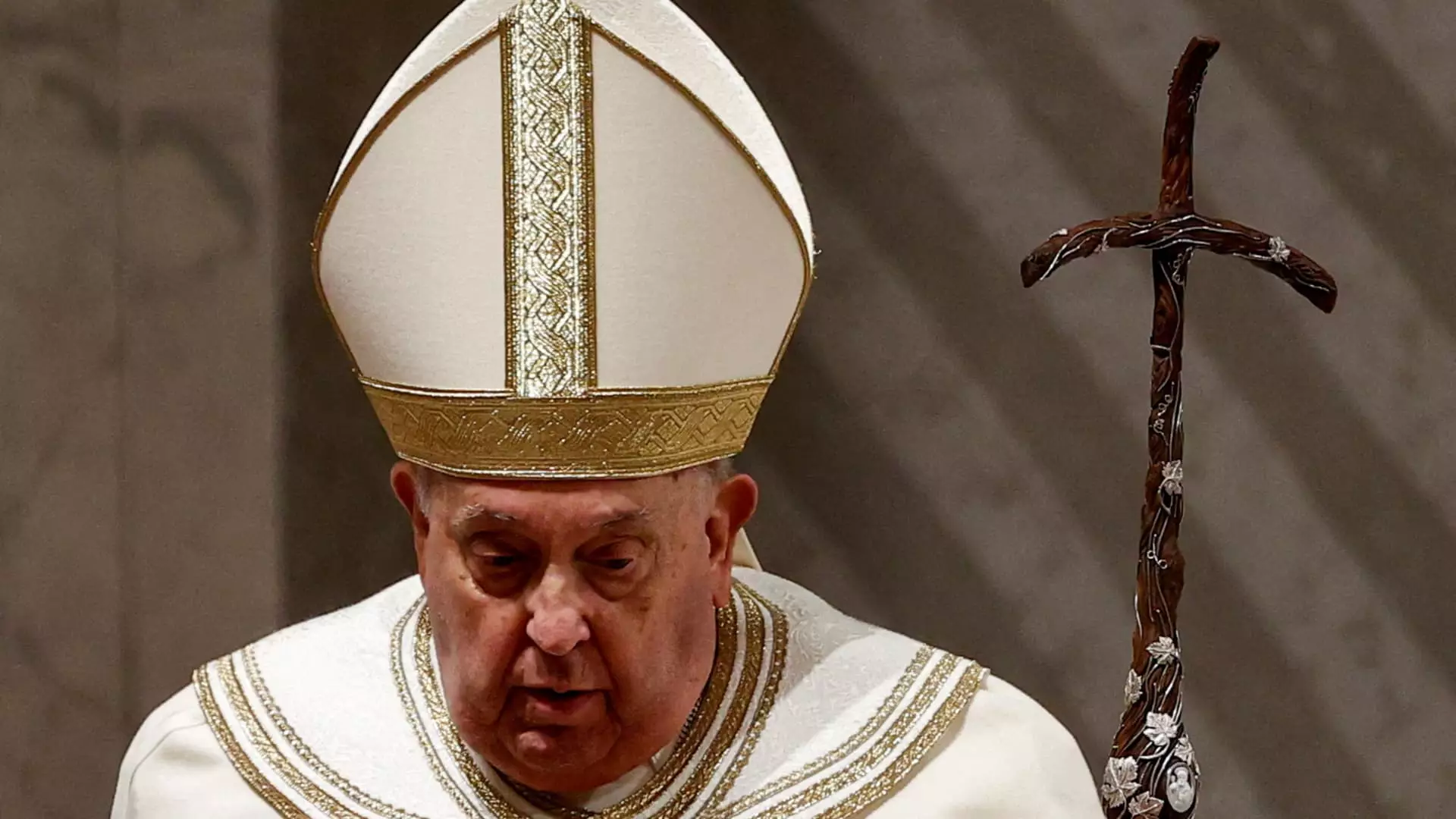Pope Francis is currently facing a significant health challenge, as confirmed by the Vatican and medical professionals attending to him. The 88-year-old pontiff was admitted to the Gemelli Hospital in Rome on February 14, following respiratory troubles that led to a diagnosis of double pneumonia. In the latest updates, the Vatican reported that overnight, the pope’s condition was stable and that he experienced a restful night. However, the seriousness of his pneumonia, which affects both lungs, raises concerns about his overall health and recovery prognosis.
Double pneumonia, an acute infection affecting both lungs, is a severe condition that can lead to significant complications if not managed appropriately. It causes inflammation and scarring, which can severely hinder respiratory functions. The Vatican has characterized the pope’s situation as “complex,” attributing his infection to multiple microorganisms. This nuance is crucial, as infections of this nature require careful antibiotic management and close monitoring in a hospital setting. Given the pope’s prior health issues, including a history of lung problems stemming from pleurisy and the removal of part of a lung, his vulnerability to such infections is substantially heightened.
Age undoubtedly plays a critical role in Pope Francis’s health complications. Doctors have indicated that the pope’s advanced age and existing frailty contribute to the severity of his condition. Previous medical evaluations revealed a “prolonged asthma-like respiratory crisis,” necessitating the use of high-flow oxygen and blood transfusions due to significantly low platelet counts, a condition often associated with anemia. These factors not only complicate recovery but also place him at risk for potentially life-threatening conditions like sepsis, should the infection escalate.
The Vatican’s recent statements regarding the pope’s health reflect a cautious optimism but also an underlying anxiety regarding the trajectory of his illness. The announcement that the pope required supplemental oxygen and blood transfusions indicates a serious level of intervention. As healthcare providers closely monitor his status, the potential for complications remains a pressing concern. Doctors have warned of the intrinsic risks associated with lung infections that could spread, emphasizing the critical need for vigilant care and proactive treatment strategies.
Pope Francis’s health struggles highlight the broader implications of aging in leadership roles, particularly within demanding positions like that of the pope. His tenure has been marked by moments of frailty, yet he continues to inspire many with his resilience and commitment to his duties. As the world watches for updates on his recovery, this situation serves as a stark reminder of the vulnerability of even the most revered figures in society. The papacy itself, often seen as a bastion of steadfastness, must also grapple with human limitations and the complex realities of health in advanced age.


Leave a Reply